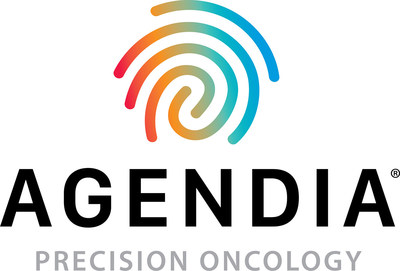Agendia®, Inc., a world leader in precision oncology for breast cancer, announced today that Translational Cancer published long term analytical performance characteristics of the 80-gene BluePrint® molecular subtyping ass
|
IRVINE, Calif. and AMSTERDAM, April 16, 2020 /PRNewswire/ -- Agendia®, Inc., a world leader in precision oncology for breast cancer, announced today that Translational Cancer published long term analytical performance characteristics of the 80-gene BluePrint® molecular subtyping assay. Breast cancer is a heterogeneous disease with distinct patient populations who experience different clinical outcomes. Traditionally, these patient groups have been identified by their estrogen receptor (ER), progesterone receptor (PR) and human epidermal growth factor receptor 2 (HER2) statuses. Determining a patient's clinical subtype, either luminal (ER+ and/or PR+), HER2+ or triple negative (ER/PR-, HER2-), via immunohistochemical (IHC) testing is a critical part of the diagnostic workup process to inform treatment planning. As an adjunct to IHC testing, the 80-gene BluePrint molecular subtyping assay goes beyond traditional cell surface markers such as ER, PR and HER2 to determine the underlying pathway driving a tumor's growth. In combination with MammaPrint®, BluePrint categorizes patients into four distinct subtypes, Luminal A-Type, Luminal B-Type, HER2-Type or Basal-Type, to further support treatment planning. The Translational Cancer publication demonstrated that over a three year period, the BluePrint molecular assay was highly precise and reproducible with correlations above 98% for reported numerical indices and 99% concordance for reported subtype categories. This contrasts with standard IHC and in situ hybridization assays (often used for HER2) which have variability from lab to lab due to challenges with standardization and interpretation of results. In addition to clinical validity and utility, analytical validity and reproducibility are important considerations when adopting testing methods to guide breast cancer treatment. One of the primary benefits of BluePrint testing is identifying unique patient groups where there is discordance between IHC and molecular subtyping results. For instance, the well characterized ER+ Basal group, ER+ by IHC but Basal by molecular subtyping, has a poorer prognosis than standard ER+ patients. In a French study published by NPJ Breast Cancer and led by Pr. François Bertucci and his colleagues from the Centre de Recherche en Cancérolgie de Marseille, 65% of ER+ Basal patients had a recurrence within 3 years of diagnosis vs. only 44% in the ER+ Luminal group. This study was an in silico analysis of a data set from 36 studies that included 5,342 pathological ER+/HER2- tumors. Overall, the Basal subtype was found to be more closely related to pathologically triple negative breast cancer, yet still distinct. Dr. Bertucci concluded, "the study results reinforce the potential clinical value of the different molecular classifications in ER+/HER2- breast cancers. The Basal and Luminal subtypes are so different with respect to therapeutic response and metastatic potential that they cannot continue to be assimilated and treated as a homogeneous ER+/HER2- group." "By clearly understanding the molecular subtype of a patient's tumor prior to surgery, physicians can use this information to guide treatment decisions and determine which patients will have favorable outcomes with pre-operative chemotherapy and those who would benefit by going directly to surgery," said William Audeh, MD Chief Medical Officer of Agendia. To learn more about this and other published studies, please visit: About Agendia MammaPrint®, the 70-gene breast cancer recurrence assay, is the first FDA-cleared risk-of-recurrence test backed by peer-reviewed, prospective outcome data and included in both national and international treatment guidelines. BluePrint, the 80-gene molecular subtyping assay, is a commercially available test that evaluates the underlying biology of a tumor to determine what is driving its growth. Together, MammaPrint and BluePrint provide a comprehensive genomic profile to help physicians make more informed decisions in the pre- and post-operative treatment settings. By developing evidence-based, novel genomic tests, Agendia aims to support the evolving clinical needs of breast cancer patients and their physicians. Agendia's assays can be ordered on core biopsies or surgical specimens with results provided in as little as 5-7 days to inform pre- and post-operative treatment decisions. For more information on Agendia's assays and ongoing trials, please visit www.agendia.com
SOURCE Agendia |





